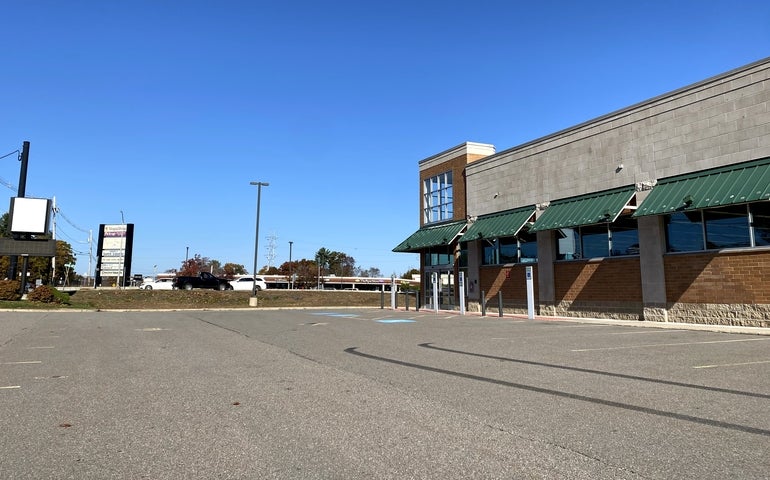Restaurants, retailers and other small businesses hurt by the pandemic will be eligible for grants through a new $668 million small business relief fund operated by the state, Gov. Charlie Baker said Wednesday, a day after announcing new business restrictions aimed at preventing a post-Christmas boom of COVID-19 cases.
The small business relief effort dwarfs the $50 million in grants awarded Monday to 1,158 businesses, and could lead to thousands of new businesses receiving checks as soon as next week.
Baker rolled out the new grant fund two days before Christmas and three days before a new set of business restrictions take effect on Saturday, limiting businesses to 25 percent capacity and further restricting the volume of customers they are able to accommodate at any given time.
The rollback on capacity limits, Baker said, will last for at least two weeks and will hopefully be temporary to prevent Christmas gatherings from sparking the type of acceleration in COVID-19 cases and hospitalizations that Thanksgiving caused.
“We get that these decisions have consequences, and that the impact of these decisions have serious impacts on people’s lives, and we don’t take that lightly,” Baker said.
Baker said qualifying businesses will be eligible for grants of up to $75,000 or three-months of operating expenses to help pay for salaries, utilities, rent, debt or other expenses.
The grants will be administered by the Massachusetts Growth Capital Corporation, and businesses who have already applied to the smaller $50 million grant program will not have to reapply. The first grants will be awarded to those who could not be funded in the first round beginning next week, and a second two-week application window will open on Dec. 31.
The initial grant program attracted 10,700 applications, Baker said. Though not all those businesses qualified, Economic Development Secretary Mike Kennealy estimated that $300 million to $350 million in eligible requests did not get funded in the first round.
While it’s unclear precisely how Baker plans to pay for the program, he said it relies in part on President Donald Trump signing a $900 billion federal stimulus package, which the governor said “creates some flexibility with respect to how we can use federal funds.”
“The president is obviously signaling some uncertainty with respect to the bill that’s currently before him, but the truth is the commonwealth nor the country should be required to wait any longer for this relief,” Baker said.
Trump has said the bill includes “wasteful and unnecessary” spending, while also calling the $600 stimulus payments in the bill “ridiculously low.” He has said it should be increased to $2,000 for individuals and $4,000 for a family. Baker said the bill was not perfect, but he urged Trump to sign it.
“Washington took a very long time. Now more than ever they need to put politics aside and support the American people who have worked so hard to battle and fight their way through COVID,” Baker said.
Baker said if the stimulus deal falls apart on Capitol Hill it will make it “a lot more complicated to make the math work.” The administration later said the program relies on $650 million in Coronavirus Relief Funding that had been committed to “other purposes” and $18 million from the general budget. The Coronavirus Relief Fund money was set to expire on Dec. 30, but would be extended by one year under the new stimulus package.
“None of it is reliant on future federal aid, but there are a series of really important changes in how previous aid could be allocated that were a big deal to both state and local and county government. Some of it’s coming from there, and some of it’s coming from state funds as well,” Baker said.
Lt. Gov. Karyn Polito said eligible businesses will include restaurants, bars, caterers, indoor recreation and entertainment venues, gyms and fitness centers, event support professionals like photographers, nail salons, barbershops and retailers.
Jon Hurst, president of the Massachusetts Retailers Association, called the relief fund “an important holiday gift to many consumer-serving small businesses, which have been disproportionately injured by government orders, restrictions and messaging resulting in dramatically lower sales numbers.”
“Combined with a new round of PPP from Capitol Hill, this state grant program can help cover fixed operating costs which never went away despite far lower sales. The combined grant programs along with the vaccine roll out, truly gives Main Street Massachusetts real hope for the New Year,” Hurst said.
However, Bob Luz, president of the Massachusetts Restaurant Association, said he worried that the program could still become “oversubscribed” due to the number of small businesses around the state and the severity of their losses.
“There is no doubt that $668M is a very meaningful number, and we are very relieved to see Restaurants/Hotels at the front of the pack,” Luz wrote in an email. “While no industries have been spared, restaurants have been hit the hardest, and being number one on this list is the last place you want to find an industry.”

